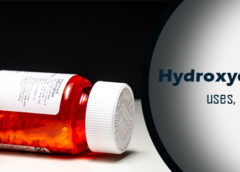What is hydroxychloroquine?
Hydroxychloroquine is a quinoline drug used to cure or avoid malaria, a disease caused by parasites that entering the body from a mosquito bite. Malaria is prevalent in regions like Africa, South America, and Southern Asia. This medicine is not selective against all malaria strains.
Hydroxychloroquine is also an antirheumatic drug which is used to cure symptoms of rheumatoid arthritis and syste-19mic lupus erythematosus or discoid.
Uses
This is used to avoid or cure malaria caused by mosquito bites. It is often used in areas where it is understood that other medicines (e.g., chloroquine) do not work, to avoid malaria infection. The US Centres for Disease Control provides new guidelines and travel advice for malaria prevention and treatment in different parts of the world. Discuss with your doctor about the most recent details before going to places where malaria exists.
This medicine is also used for the treatment of certain auto-immune diseases (lupus, rheumatoid arthritis). It belongs to a class of medicines called disease-modifying antirheumatic drugs (DMARDs). It can reduce skin problems in lupus and prevent swelling/ arthritis pain
Hydroxychloroquine belongs to a group of antimalarial drugs. It works by preventing or treating malaria, an infection of the red blood cell caused by a mosquito’s bite. This medicine is still not used to treat serious or complicated malaria.
It is used to treat discoid lupus erythematosus (DLE) or systemic lupus erythematosus (SLE or lupus). It is also used for treating chronic rheumatoid arthritis and acute.
This medication is only available on prescription from the doctor. This medicine can be found in the form of tablet dosage.
Hydroxychloroquine side effects
If you have signs of an allergic reaction to hydroxychloroquine get emergency medical help: hives, the problem in breathing, and swelling of your face, lips, tongue, or throat.
Discuss with your doctor at once if you have:
- Headache with chest pain and extreme dizziness, fainting, fast or irregular heartbeats
- Very slow heart rate
- Muscle weakness, numbness or tingling
- Low blood sugar
- Low blood cell counts
Side effects aren’t common. However, in some people hydroxychloroquine can cause:
- Skin rashes, especially those made worse by sunlight
- Feeling sick (nausea) or indigestion
- Nausea, vomiting, stomach pain
- Hair loss
- Loss of appetite, weight loss
- Mood changes, feeling nervous or irritable
- Headaches
- Bleaching of the hair or mild hair loss
- Tinnitus (ringing in the ears)
- Visual problems.
There’s a slight risk that hydroxychloroquine may damage a portion of the inside of the eye called the retina. And this excessed with higher dosage and long term use. Stop taking this drug and call your doctor immediately if you have trouble facing, if you see light spots or sparks in your vision, or if you note any colour changes in your eyes or swelling.
Your doctor will advise you on a healthy dose to be taken according to your weight, and you will need to check your eyes daily.
This monitoring of your eyes may be arranged at a hospital clinic when you start the drug and then again once a year in a hospital when you have been taking the drug for more than five years.
Otherwise, you should have a check-up with an optician once a year and tell them that you’re taking hydroxychloroquine.
You should report any new eye symptoms to your doctor straight away.
Does hydroxychloroquine work against COVID-19?
In recent weeks, the anti-malaria drug hydroxychloroquine has made headlines for its ability to help with the new coronavirus outbreak, COVID-19, though its benefits remain unproven.
There is not enough scientific evidence at this time to prove that hydroxychloroquine and chloroquine work for COVID-19 — although some small studies suggest the medications may be helpful, other studies saw no difference.
“In laboratory studies, Chloroquine seems to block the coronavirus. There’s some anecdotal evidence from doctors saying it has appeared to help,” James Gallagher, BBC health correspondent, explained.
But crucially, there have been no full clinical trials that are necessary to see how the medicine behaves in actual patients, although they are underway in China, the United State, United Kingdom and Spain.
Clinical studies are under investigation for pre-exposure or post-exposure prophylaxis of SARS-CoV-2 infection, and treatment of patients with mild, moderate, and severe COVID-19 Hydroxychloroquine and chloroquine.

Leave a Reply
You must be logged in to post a comment.